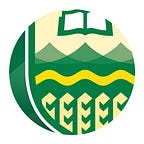Flashing through history
History lesson in the cards for Canadian students.
Dry history lessons that don’t resonate with students may be a thing of the past if a University of Alberta professor can get a new, interactive learning tool into classrooms.
In advance of the 150th anniversary of Canadian confederation, social studies education professor Lindsay Gibson is releasing a set of 150 flash cards focusing on events in Canadian history. One side of each card names a historical event paired with an archival image; the other has the date, a further description of the event and its consequences. Gibson’s goal with the cards is to discover if K-12 students’ accounts of Canadian history could be improved.
“Students have difficulty putting the various events they have learned about in their K-12 education into a meaningful narrative. These cards are a tool that will help them build some coherence and understanding of Canadian history,” explained Gibson.
“We’re storytelling animals. It’s how we make sense of the past. Is it possible, with a tiny bit of instruction, to completely change the stories students might tell about Canada?”
The concept of the flash cards came to Gibson when a friend’s six-year-old daughter invited him to play a “history game” called Timeline. The game’s cards have illustrations of a historic event on one side and the date on the other. Players correctly place cards in a timeline with the goal of getting cards out of their hands. Gibson wondered how something similar could work in a Canadian context.
Inspired, Gibson created a set of similar cards to help British Columbia teachers bring Chinese-Canadian history into their classrooms. After the positive response, he expanded the project to cover Canadian history just in time for the 150th anniversary.
After developing a list of 150 events with the help of Canadian historians, Gibson created his first prototype. He chose to work with Grade 11 students who had finished studying the entirety of Canadian history in British Columbia’s social studies curriculum. Before he brought the cards into the classroom, he asked students to list the most important events in Canadian history and write Canada’s story. The results surprised him: only two students mentioned Indigenous peoples occupying the land prior to European contact and there were numerous historically-inaccurate claims.
“Students would make egregious errors,” said Gibson, “such as Pierre Trudeau being the Prime Minister who led Confederation and also brought in the Charter of Rights and Freedoms at the same time. At the end of 12 years of social studies, this is what you think?”
As part of his study, Gibson also asked the students to make their own timelines of what they thought were the most historically significant events and discuss them with classmates.
Graeme Stacey, the class’ teacher, was impressed by how the cards changed the landscape of his classroom.
“It was a totally engaging activity,” said Stacey. “There was no downtime, no kids on their phones or working on something else.”
“At the end of the day, we hope that students can tell a coherent, plausible narrative of Canadian history, but also one that is nuanced.”
The next step is for Gibson to get the cards into Alberta classrooms and discover what teachers here do with them and the degree they impact students’ ability to develop a logical narrative. Though he has already designed some accompanying lesson ideas focused on different historical thinking concepts, he recognized that there are many potential ways for a class to use the cards.
“I’m really excited to get them into the hands of teachers,” said Gibson. “What will they do with them? They are bound to come up with ideas that I haven’t even contemplated.”
While Gibson is excited to see what other teachers do with the flash cards, he also hopes students start to build their own stories of the past.
“At the end of the day, we hope that students can tell a coherent, plausible narrative of Canadian history, but also one that is nuanced,” said Gibson.
“I really want students to think critically about Canada’s 150th anniversary. Is it historically significant? With these cards, I hope to deepen their understanding of history and build this framework so they can deconstruct and or reconstruct the story they tell, rather than tell them ‘here’s the story.’”
***Update*** Gibson’s flash cards are now be available through The Critical Thinking Consortium.
For almost as long as there’s been a Canada, there’s been a University of Alberta. Over the next year, in honour of Canada’s 150th anniversary, we’re proudly celebrating the people, achievements and ideas that contributed to the making of a confederation.
